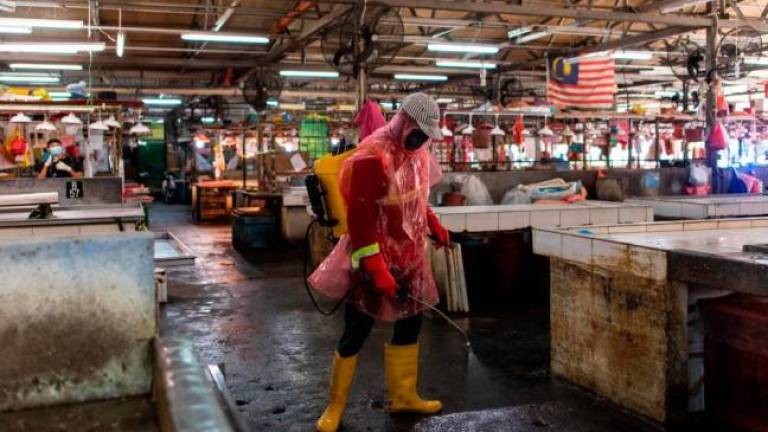
Operations at wet markets have been adversely affected after Federal Territories Minister Tan Sri Annuar Musa pulled the plug on cheap foreign labour at these places.
His concern over wholesale markets being taken over by foreigners is warranted as undocumented migrants not only make up the bulk of the workforce but have been running the business there by renting stall licences from Malaysian owners.
With local operators trying to grapple with the labour shortage and business disruptions, the situation at wet markets underscores our vulnerability due to over-reliance on cheap foreign labour.
The migrant workforce is even greater in other businesses. They are not just employed for the so-called 3D (dangerous, dirty and difficult) jobs in the construction, plantation or agricultural sectors.
A substantial number of small and medium enterprises (SMEs) also employs foreign workers.
Data from the Department of Statistics Malaysia (DOSM) last November showed that there were 2.3 million documented foreign workers in our workforce. The International Organisation for Migration estimated that there are up to four million undocumented migrant workers in Malaysia.
The previous administration had drawn up a RM6.5 billion initiative to develop human capital and reduce the country’s reliance on low-skilled foreign workers.
Called Malaysians@Work, the then federal government proposed creating an additional 350,000 jobs for Malaysians and reduce dependency on foreign workers by more than 130,000 over five years.
It was unveiled in Budget 2020 last October and was to commence in stages from the second quarter of this year.
According to DOSM, 600,000 Malaysians have been left unemployed as of March due to the movement control order. We have not seen the full impact of the Covid-19 pandemic on our job market.
The government needs to ensure jobs for more than half a million unemployed Malaysians in its post-pandemic economic recovery plan. The jobs currently held by foreigners are there for the taking, just that the pay and working conditions are not attractive enough.
It will be wise to push through the Malaysians@Work initiative. Businesses also need to accept that cheap labour doesn’t have a place in the new normal.
Our policymakers need to ensure that it is Malaysians first when drawing up the recovery plan. The overdependence on cheap labour was the reason that landed us in this quandary in the first place.
Source: https://www.thesundaily.my/local/no-place-for-cheap-labour-in-the-new-normal-DB2425984

